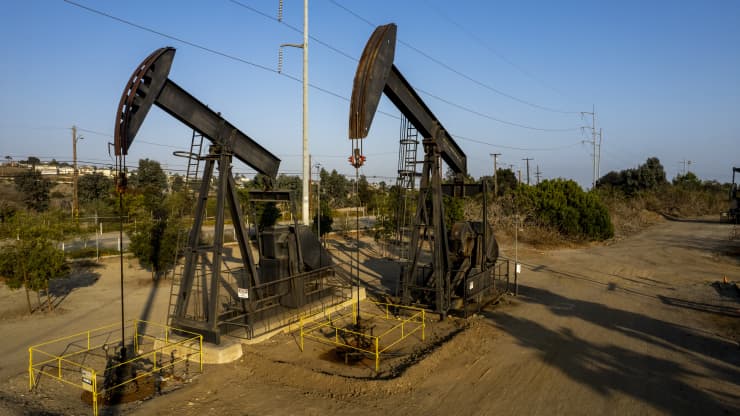Key details
With high volatility in commodity prices, Brent for June settlement plummeted by $5.25, or 4.88%, to $101.44 per barrel as of 4:00 p.m. GST Monday, the lowest since April 12, 2022. West Texas Intermediate (WTI) for June deliveries dropped by $5.17, or 5.11%, to $96.81 around the same time. The benchmarks lost nearly 5% last week on demand concerns
Chinese authorities have erected fences outside residential buildings in Shanghai, the country’s most populous city and its financial hub, to curb the spread of COVID-19, sparking a backlash over a lockdown that has forced much of the city’s 25 million people indoors
The surge in new cases in Beijing and a record number of daily coronavirus deaths in Shanghai over the weekend have sparked fears about an unprecedented lockdown as the world’s biggest crude importer is heading for the worst oil demand shock since the early days of the pandemic
The outbreak of COVID-19 in China adds another source of volatility to the oil market following Russia’s invasion of Ukraine in February. Russia’s war in Ukraine has fanned inflation, and the European Union (EU) is discussing measures to restrict oil imports from Russia—a move that is likely to tighten the market and drive prices higher
Meanwhile, US Federal Reserve Chairman Jerome Powell indicated last week that a half basis-point interest rate increase “will be on the table” when the Fed meets in May to approve the next in what is expected to be a series of hikes this year
Smart sanctions
The EU is preparing “smart sanctions” against Russian oil imports, British daily The Times reported on Monday, citing the European Commission Executive Vice-President Valdis Dombrovskis
“We are working on a sixth sanctions package, and one of the issues we are considering is some form of an oil embargo. When we are imposing sanctions, we need to do so in a way that maximizes pressure on Russia while minimizing collateral damage on ourselves,” Dombrovskis told The Times
The bloc has not yet agreed on the precise details of the oil sanctions, but they could include a gradual phasing-out of Russian oil or imposing tariffs on exports beyond a certain price cap, added the report
Russia is Europe’s top gas supplier and the world’s second-biggest oil exporter after Saudi Arabia. Ukraine and some EU states, including Poland and Lithuania, want a ban on Russian oil and gas, while Germany and Hungary are against an immediate oil embargo

